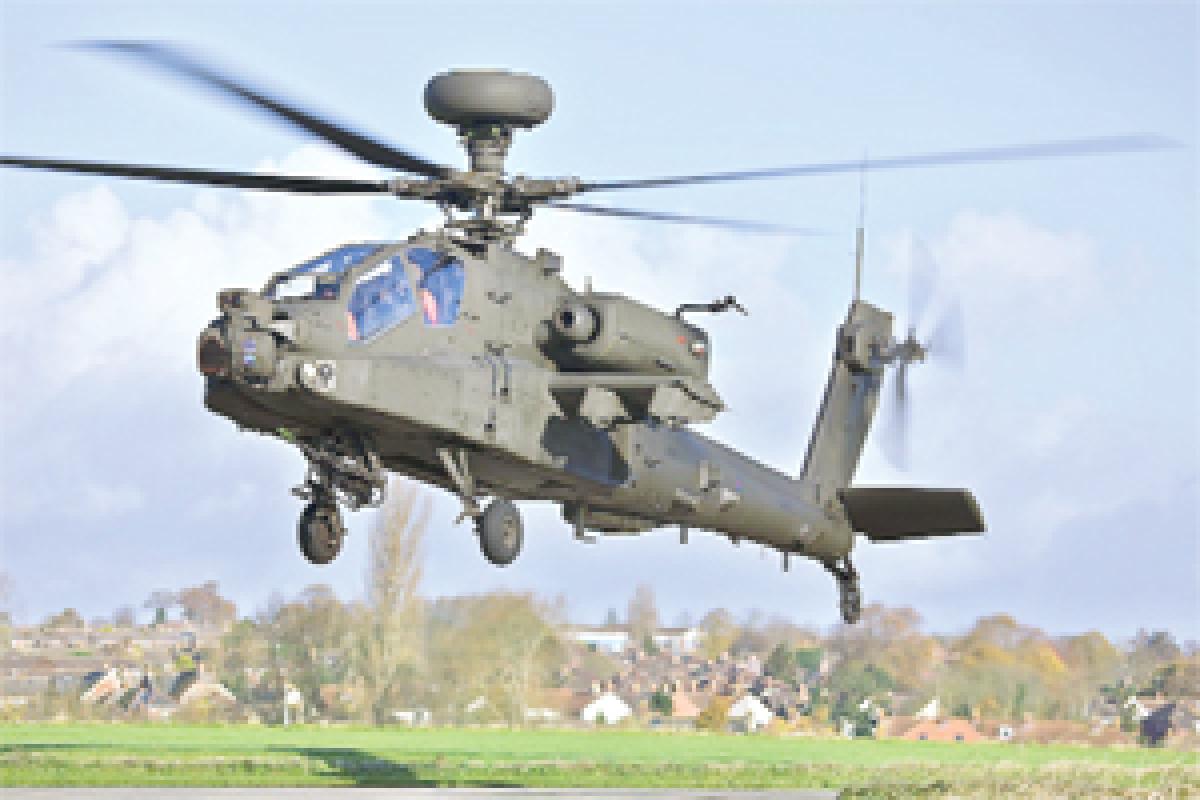Live
- Welfare hostels shut as bills pile up
- CM Revanth Reddy Slams BJP Leaders Over Inaction
- Minister Ponguleti visits Basara temple
- Ashutosh Gowariker to lead International Jury at IFFI 2024
- The global challenges of greener aviation
- Shreyas Media secures exclusive advertising rights for ‘MahaKumbh Mela 2025’
- Experience the journey of art
- Seven iconic ghats undergo makeover for Mahakumbh
- Smog engulfs capital with ‘severe’ air quality
- Slur against HDK wrong, Zameer will be corrected: K’taka Cong
Just In

Westland Chopper Deal Achilles Heel In UK-India Ties. A mutli-million-pound contract for India to purchase 27 Westland 30 helicopters was described as the British government\'s \"Achilles heel\" in relations with India following Indira Gandhi\'s assassination in October 1984, according to newly-declassified UK government documents.
.jpg) London: A mutli-million-pound contract for India to purchase 27 Westland 30 helicopters was described as the British government's "Achilles heel" in relations with India following Indira Gandhi's assassination in October 1984, according to newly-declassified UK government documents. According to the documents at National Archives, senior members of the Margaret Thatcher government feared a change in India's stance over a deal struck by the former Indian Prime Minister.
London: A mutli-million-pound contract for India to purchase 27 Westland 30 helicopters was described as the British government's "Achilles heel" in relations with India following Indira Gandhi's assassination in October 1984, according to newly-declassified UK government documents. According to the documents at National Archives, senior members of the Margaret Thatcher government feared a change in India's stance over a deal struck by the former Indian Prime Minister.
"The Prime Minister may wish to be aware that Westlands had negotiated an order of 27 Westland 30 helicopters for use in oil rig support with one of the Indian Government agencies. "The order had Mrs Gandhi's backing and unless this backing continues at a high level it is possible that the French will intervene and the order be lost," warned Peter Warry, one of Thatcher's special advisers, in a letter issued on November 1, 1984 -– a day after Gandhi's assassination. Further background briefing documents prepared by the UK Foreign and Commonwealth Office (FCO) alongside the British High Commission in New Delhi added: "Westlands are in the final stages of negotiating a contract for the sale of W30 helicopters (contract value 65 million pounds; 100 per cent aid financed)... India is one of the best potential sales markets with defence sales of 1.28 billion pounds since 1975."
The then British High Commissioner to India, Robert Wade-Grey, issued a warning that British Sikh celebrations in the UK following Gandhi's death could have a direct impact on the deal. "There is even talk of a trade boycott, including cancellation of existing defence contracts," he wrote to the then foreign secretary, Geoffrey Howe, who was sufficiently rattled.
"There is obviously a wide area of vulnerability, and the Westlands helicopter contract might, in particular, offer a handy Achilles heel if the Indians were so minded," he said. These initial exchanges led to more detailed briefs being prepared on Rajiv Gandhi, who, it was clear, would be the one to ensure the deal goes through as Acting Prime Minister.
Confidential profiles prepared by the British High Commission in New Delhi offer some interesting snippets: "Rajiv is quietly spoken, courteous and diffident. He is not an intellectual, nor impulsive... Although withdrawn in some ways, he is mentally tough and shows signs of an independent mind. He is, thus, in many ways, like his mother was before she became Prime Minister.
"Rajiv married Sonia, an Italian girl (who took Indian citizenship only in 1983) he met at Cambridge, in 1968. She is good-looking, quiet, and while not interested in politics, clearly gives him a feeling of security at home. She got on well with Mrs Gandhi."
Thatcher eventually exerted her own direct pressure on Rajiv Gandhi in March 1985: "We would be faced with very considerable political and practical difficulties if the Westland project were not concluded. I do hope that we can stand by what was agreed." Some of the other defence deals that were on Britain's priority list seemed less of a challenge. The FCO records note: "A decision on a contract for a major new artillery piece is near. The British FH70 is a strong contender. Total contract value 800mn pounds. Although FH70 has all the qualities required by the Indian Army the competition is strong and political intervention may be required in support of it. "The Indians are interested in a follow-on purchase of 11 Sea Harriers (contract value 200m pounds approx). We have no competition here."
The dubious Westland deal eventually did go ahead but was to be later described by officials involved as a "catastrophic waste of money." India bought 21 Westland 30s and the money came out of Britain's aid budget and was given to India on condition it bought the helicopters.
The 14-seater Westland 30s proved to be highly unreliable and a commercial disaster and India sold its entire fleet back to Britain for the scrap value of 900,000 pounds after the machines were found to be technically faulty and grounded.

© 2024 Hyderabad Media House Limited/The Hans India. All rights reserved. Powered by hocalwire.com







